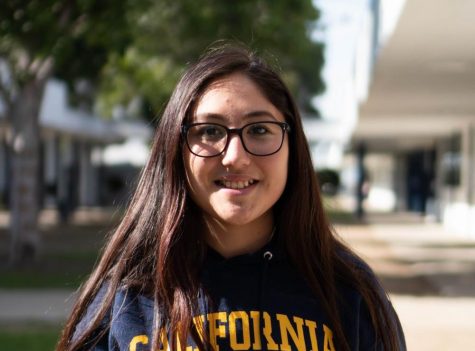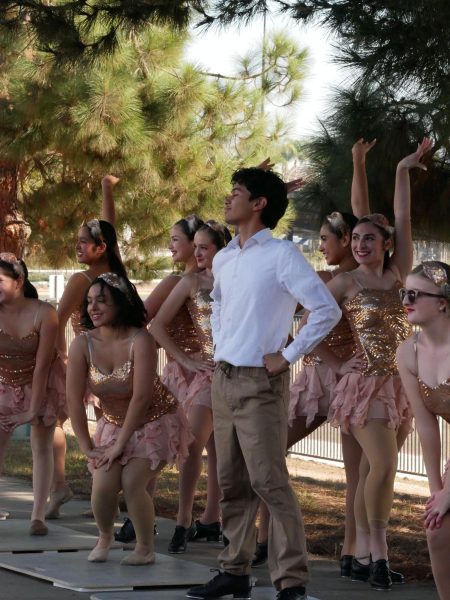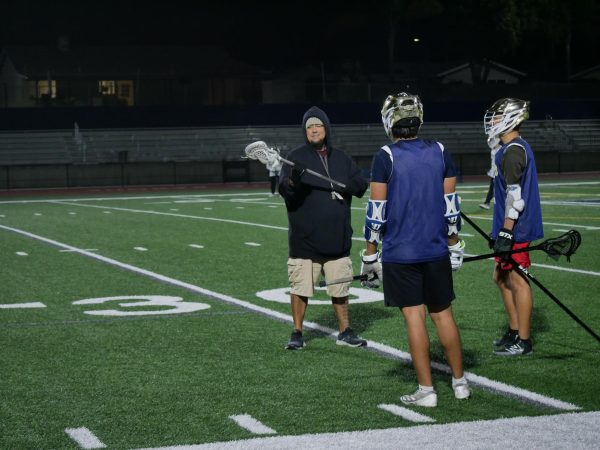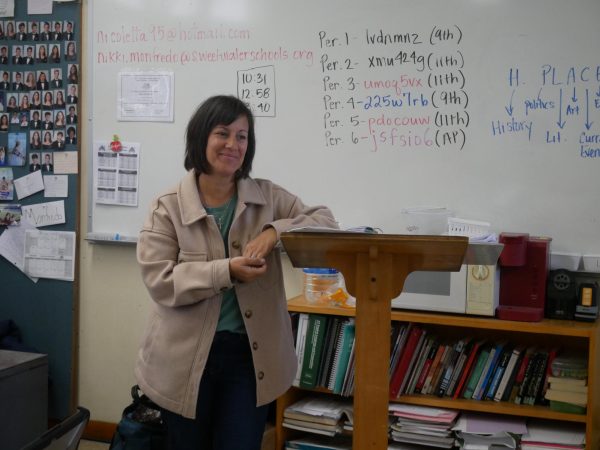BVH student publishes article in NYT
Senior Isaac Lozano pursues his passion for writing through professional publications
On Aug. 13, 2020 The New York Times (NYT) published an article titled Remote Learning is Hard. Losing Family Members Is Worse written by Bonita Vista High senior Isaac Lozano. The focus of the piece was how distance learning and the loss of a family member, due to COVID-19, has personally affected his family. Lozano enjoys using writing to share his experiences and make the best of the current global situation.
“Writing is definitely a good way to turn your worst experiences into something that you’re proud of, something that can make a positive change in the world,” Lozano said.
Lozano has enjoyed writing since he was in middle school and had teachers and classmates who constantly encouraged him to pursue it. He also finds writing to be an easy way to reflect and express himself.
“I think my writing skills are a bajillion times better than my speaking skills. I like writing because I can sort of collect my thoughts, […] and just […]express my opinions in a more reflective way,”Lozano said.
View this post on Instagram
Before writing his piece for the NYT, Lozano attended two writing courses, each five weeks long. Both were taught by the author of The Byline Bible and writing professor at The New School, New York University and Columbia University, Susan Shapiro. Each class held about 50 students between the ages 14-90, with Lozano being the only high schooler— making him feel a little intimidated and awkward at first.
“It was actually kind of interesting because it was 70 percent rich, older white women. I felt pretty defeated for a [while] because the students in those classes published pieces super quickly. They’re very seasoned writers,” Lozano said.
These classes normally cost $500 each, but Lozano was offered a free spot for both sessions by Shapiro, who works to “[help] low-income students from minority and marginalized groups find their voice and footing in the writing world.” At the end of the first session, Lozano managed to get an article published by the San Diego Union Tribune, and by the end of the second session got his article published in the NYT.
“I was thrilled about Isaac’s success in publishing his essay in The New York Times. Isaac worked very hard on his piece. Plus he had an important story to tell and learned how to make it timely, which is what daily newspaper editors care about most,” Shapiro said.
The topic of the article touched on some personal points for I. Lozano and his family, but he decided to share the story to give others hope. He admits that online school can be very hard and frustrating, especially for students who are uniquely disadvantaged and forced to practice online learning.
“Writing was just a great way for me to kind of channel that frustration into something that could hopefully give voice to millions of other kids who are in similar situations to me,”Lozano said.
Lozano’s mother, Elna Lozano says that the publication of I. Lozano’s article received positive reactions from their own family. E. Lozano talks about how their family has helped each other make the best of distance learning.
“We are very proud of Isaac, and his accomplishments are all his. He has placed all of his effort on his life goals, and despite being so young, he is very wise for his age. We know he will be successful in all his endeavours, especially his studies,” E. Lozano said.
Many readers, including teachers, classmates and peers alike, have also reached out to I. Lozano in an effort to express their appreciation for the article. He states that the effect his article had on others was even more rewarding than the achievement of getting the article published.
“I thought that seeing my name on the front page of The New York Times would be the most emotional aspect, but I think it was really the reaction that I got. It was just a wave of positivity. I’m just really grateful for all that,” I. Lozano said.
Many new opportunities have also opened up for I. Lozano as a result of the publication. He’s had interviews with several different news stations and an Instagram live interview with the NYT editor who helped him get his article published. Furthermore, he’s been personally contacted by the director of Undergraduate Admissions at Yale, who complimented his piece. He has been offered an internship by Congressional candidate Sarah Jacobs and is in the process of writing a children’s book, as well.
“My mentality in terms of all the success is yes, shock and gratitude, but also [that] it was mostly hard work and a little bit of luck. I think people mistake hard work for talent,” I. Lozano said.
Lozano admits he has been dealing with imposter syndrome, partly because everything happened so quickly. Despite this, he feels he is dealing with the response to his article in a healthy way by staying humble and reaching out to people for advice to continue to grow as a writer.
“I think it’s just good to focus on your own growth and your own path. You have to realize that everything is very random. Opportunities come once a year and if you don’t take it, […] it just doesn’t happen,” I. Lozano said.
Correction: Sept. 23, 2020
An earlier version of this article falsely stated that Isaac Lozano said, “It was actually kind of interesting because it was 70 percent rich, older white women. I felt pretty defeated for a [while] because the students in those classes published pieces super quickly. They’re very seasoned writers.” I. Lozano said, “It was actually kind of interesting because it was 70 percent older white women. I felt pretty defeated for a [while] because the students in those classes published pieces super quickly. They’re very seasoned writers.”

Hi! I’m a junior at BVH and this is my second year on the Crusader staff. My position this year is staff artist, which means I get to make graphics and...




